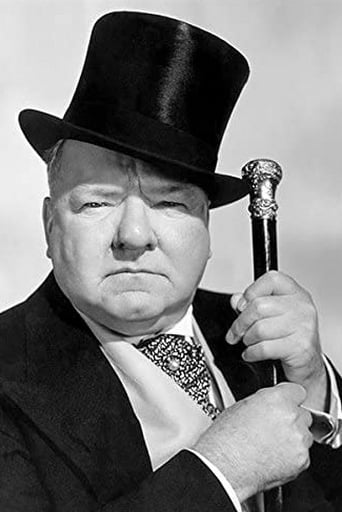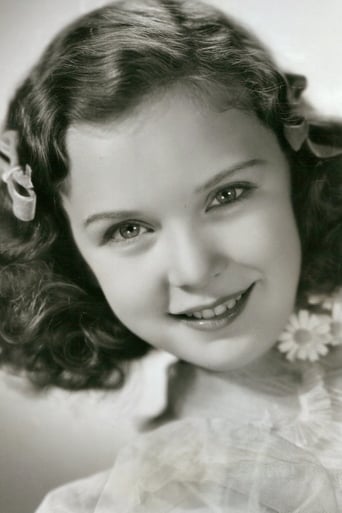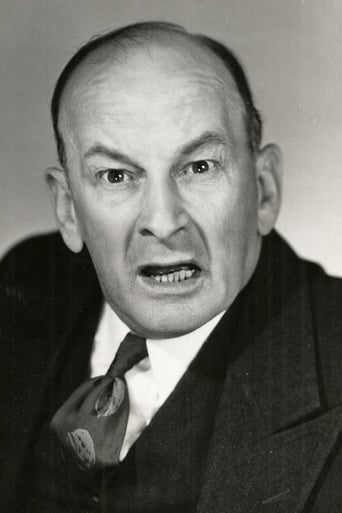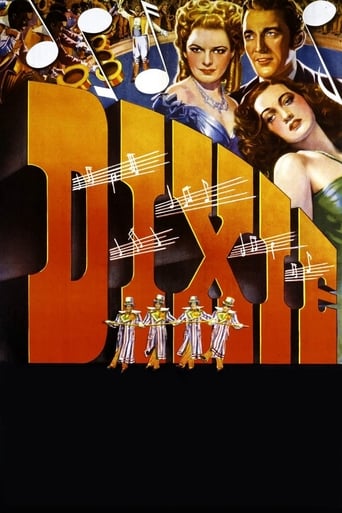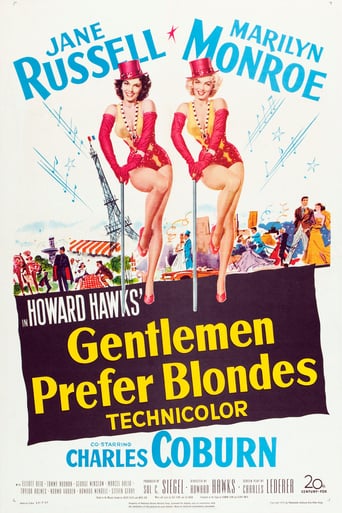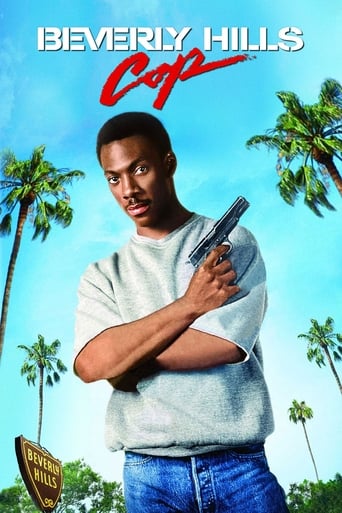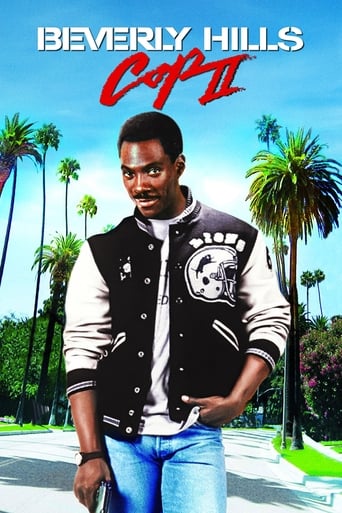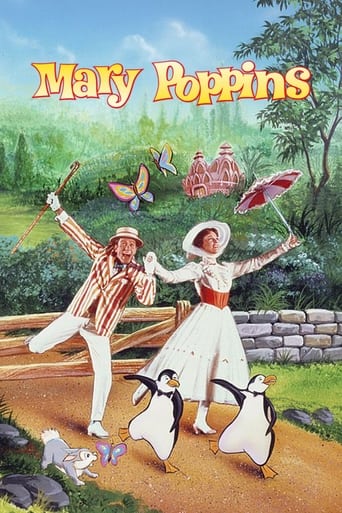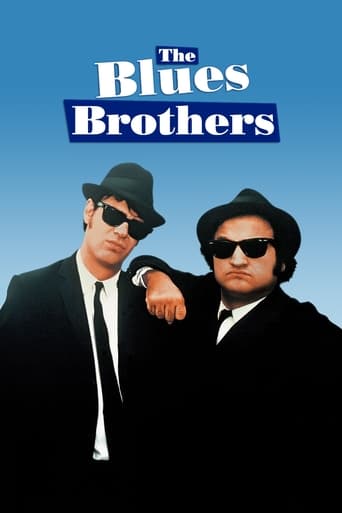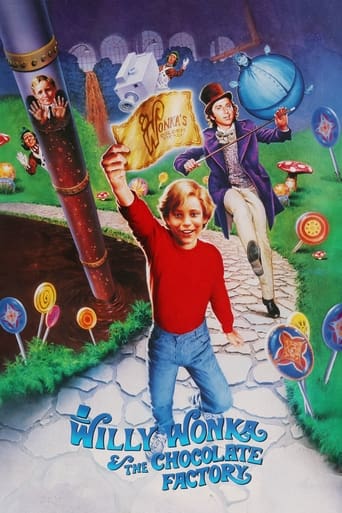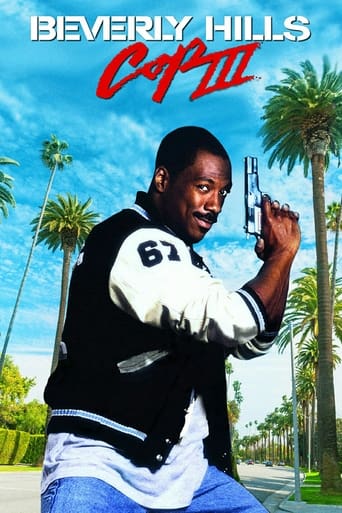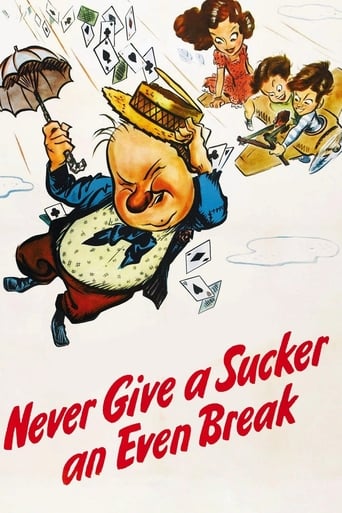
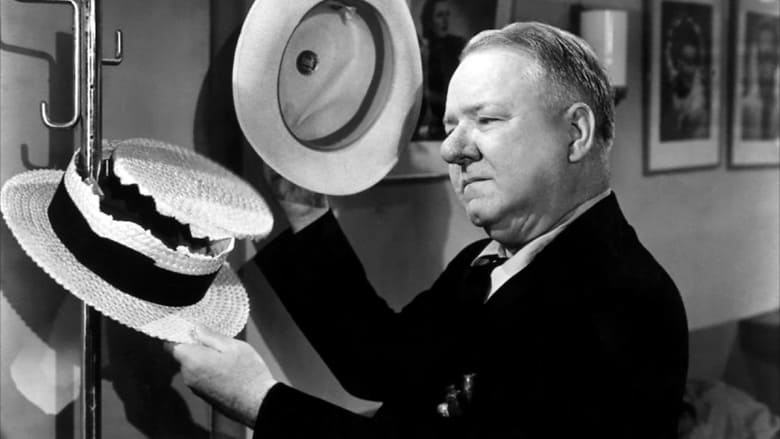
Never Give a Sucker an Even Break (1941)
Never Give a Sucker an Even Break is a 1941 film about a man who wants to sell a film story to Esoteric Studios. On the way he gets insulted by little boys, beaten up for ogling a woman, and abused by a waitress. W. C. Fields' last starring role in a feature-length film.
Watch Trailer
Cast


Similar titles
Reviews
In this movie W.C. Fields plays himself.Or at least he shares the name with him.He tries to sell the weirdest film story to Esoteric Studios.He introduces the script to the producer, Mr. Pangborn (actor Franklin Pangborn shares the name with that character).He's not too pleased with the story, where Fields is with his niece, Gloria Jean, played by Gloria Jean.In the story these two are flying to Russia with an airplane that has an open-air rear platform.Fields jumps off the plane to go after his flask (naturally) but lands safely in a nest high atop a cliff where he finds a beautiful and naive daughter and her not so beautiful mother.He escapes the cliff but comes back to marry the mother, Mrs. Hemogloben after he finds out she's wealthy (only to escape again).Why wouldn't this story sell, I just wonder!? Then we see Fields giving a ride to a woman who wants to go the Maternity hospital where her daughter is about to give birth.And what a ride it is! In this Edward F. Cline movie Never Give a Sucker an Even Break (1941) W.C. Fields gives his last starring performance.This boozing comedian lived during years 1880-1946.He comes up with lots of funny and witty stuff in this movie.Just look at those moments with the heavy waitress.Gloria Jean, who was 14 at the time is adorable as the niece.How she says: "My uncle Bill.. but I still love him!"And her singing with the strong operatic voice is just fantastic.Franklin Pangborn is hilarious.Margaret Dumont, who often romanced with Groucho Marx now romances with Fields as Mrs. Hemogloben.You got to love her.Susan Miller is her daughter Ouliotta Delight Hemogloben who has never seen a man before.Got to love her too and would like to play that kissing game with her that Fields does.Then there's Leon Errol as a rival.We also see two young hecklers, Billy Lenhart (Butch) and Kenneth Brown (Buddy).What a funny comedy this is!
I watched this one first from the second of Universal's W.C. Fields Box Set because of its almost legendary status for being "completely insane", as Leonard Maltin so aptly puts it; incidentally, the film also turned out to be The Great Man's last starring vehicle (based on his own story, credited to Otis Criblecoblis). It's amazing how Fields' essentially unlikable personality has endured over the years: he's the only actor who has made a career out of constantly dwelling on his vices, i.e. the "golden nectar", and pet hates (especially children). Besides, his comic style is so personal as to be incoherent at times - but that's part of his genius: who else could come up with such a bizarre line as "How'd you like to hide the egg and gurgitate a few saucers of mocha java?" and make it sound so utterly hilarious through his unique delivery? While self-references such as abound in this film weren't uncommon in the old Hollywood, not to mention its anything-goes attitude revolving around a wisp of plot - think Universal's own HELLZAPOPPIN' (1942), for instance, with Olsen & Johnson - Fields was the only one among the great comedians who was willing to experiment in this way; in fact, some of the cast members (including the star) play themselves and, at one point, Fields is even seen admiring the poster of his latest success THE BANK DICK (1940) while two boys exclaim to one another what a bummer it was! The end result is perhaps patchy overall but often uproarious nonetheless: there are too many pauses for song - though Gloria Jean herself is pretty and charming, and the jive rendition of "Comin Thru' The Rye" by a girl who has been sheltered from the world all her life is an inspired touch. Among Fields' comic foils in the film are Franklin Pangborn (as a flustered studio head), Marx Bros. regular Margaret Dumont (playing the grande dame even in her mountaintop retreat) and Leon Errol (as Fields' rival for the hand of wealthy man-hating Dumont). Incidentally, the receptionist in Pangborn's office is played by Carlotta Monti - Fields' then-companion.The film's best scenes and gags include: the diner sequence with Fields exchanging insults with a heavy-set waitress; the disruption of Gloria's rehearsal of a musical number, over which Pangborn presides, by the set construction crew; Pangborn reading Fields' surreal script (in which, among other things, he dives off an aeroplane - whose interior and rear deck resemble those of a train's - after the gin bottle he accidentally drops, and again from a parapet when Dumont suggests that they kiss!); Dumont's fanged mastiff (an equally fake-looking gorilla also turns up here); and, of course, the classic and brilliantly-sustained chase finale (which was later lifted for the Abbott & Costello vehicle IN SOCIETY [1944]). The dialogue is equally great - including one of the star's best-remembered lines: "I was in love with a beautiful blonde once: she drove me to drink - that's the one thing I'm indebted to her for"; he even throws in a dig at the censor, when a scene that was supposed to take place in a bar had to be reset to a soda fountain! P.S. At the end, Gloria leaves with Fields and he tells her that he had promised her mother he would take care of the girl; the mother, a trapeze artist, appears at the beginning of the film but her death scene (to which this brief exchange refers) was subsequently deleted.By the way, I'm again baffled by the fact that I've yet to come across any online review for this wonderful set; also, I'm personally not bothered by the Collection's relatively high price-point - considering that we're getting, at least, 4 comedic gems (besides, by having only one film per disc, we don't risk the freezing issues which plagued Universal's Abbott & Costello Franchise releases and which have so far kept me from purchasing them).
So many great comedians retired when they were past their heights: Chaplin never quite adjusted to the sound era; Keaton went from substandard vehicles to sad cameos; Laurel and Hardy went on in B pictures until age took the joy out of their slapstick.Fields, on the other hand, made what was arguably his funniest film, "The Bank Dick," next to last, and saved his most thorough insanity for his final shot, "Never Give a Sucker an Even Break." While not as funny as its predecessor, nor "It's a Gift," an earlier masterpiece, his last movie is a glorious kick in Hollywood's pants.Fields plays The Great Man (himself, naturally) pitching a script to Franklin Pangborn, who although also going by his own name has been somehow promoted to producer. Fields used Pangborn in other films as the embodiment of humorless, easily-shocked Society, in all its prim priggishness; it's revealing that here Pangborn becomes Hollywood too. Doubtless W.C.'s feelings about the movie industry at that point were much the same as they were about the social order: too many rules, not enough fun. His script of course, is utter hogwash: a bizarre Munchausen tale about gorillas on mountaintops, 90 proof goat's milk, and himself diving sans parachute from an airplane (which rather puzzlingly possesses an open-air observation deck) to rescue a fallen bottle of liquor.Even outside the movie studio enemies are all around: insolent children, a sarcastic waitress ("There's something awfully big about you," she comments, apropos his nose; he waits until she bends over a counter to respond, "There's something awfully big about you too."), scornful policemen, and of course the "real" movie business behind the scenes. (Fields bellies up to an ice-cream counter, darkly informing the camera, "This scene used to be set in a saloon.") Presumably these last are the geniuses responsible for saddling him a singing starlet, Gloria Jean, who gets just enough screen-time to be safely irrelevant, one more strange distraction in a movie completely full of them.Other, more welcome presences include Leon Errol, as a romantic rival of sorts, and the redoubtable Margaret Dumont, presumably on loan from the Marxes. She famously never "got" Groucho; what in God's name must she have thought of Fields?Thus the greatest comic iconoclast of his time makes his final bow, with a flourish. If it's not laugh-out-loud funny as his previous movies, it's weird, exhilaratingly pointless, and, thoroughly and wonderfully his own.
It was W.C. Fields' last lead role in a film - and his last knock at the system that gave him immortality. In THE BANK DICK Fields took several aims at making movies - from his drunken film director A Pismo Clam to his screenplay that was better than GONE WITH THE WIND (which he actually does sell at the end of the film). But there were many targets in THE BANK DICK. NEVER GIVE A SUCKER AN EVEN BREAK is a film about making movies. Fields is trying to sell his next picture to Esoteric Pictures, which is run by Franklin Pangborn. The crazy story line begins with him proudly seeing an advertisement billboard for THE BANK DICK, only to find two little brats razzing it. He and his niece, Gloria Jean, are both trying to get into business with Esoteric, and Pangborn is actually willing to sign up Gloria Jean - but she slaps him when he bad mouths her Uncle Bill. We see a rehearsal at Esoteric for Gloria Jean, and see the incongruities of the studio system when Pangborn, carried away by the music, finds himself also carried away by two actors dressed as Nazi soldier goose stepping. So it goes throughout the film, even ending with a mad car chase to get a woman to her destination - except she is taken to a maternity hospital that she did not want to go to. But, as THE BANK DICK showed, all comedies should end with a mad chase.There are references to other comics in the film, especially Fields' rivals the Marx Brothers. His interview with Pangborn is interrupted by Madame Pastrami, the cleaning lady - whom an angry Fields calls "a Groucho Marx" (actually she's a "Chico"). And the leading lady he tries to romance for her money in his film - Mrs. Hemoglobin - is none other than Margaret Dumont, Groucho's usual girlfriend. Field's past with Ziegfeld is brought in too (although not his film career it led to his film career). His rival for Miss Dumont is Leon Erroll, his old fellow Ziegfeld comic. One also wonders if the Marxes and Ziegfeld are the only references thrown in. The incongruous appearance of an ape on top of Mrs. Hemoglobin's mountain retreat is similar to the ape on the swinging rope bridge in the alps in Laurel & Hardy's SWISS MISS.The film lacks structure, so it is not as well received as THE BANK DICK, IT'S A GIFT, of THE OLD FASHIONED WAY. But Field's crazy script raises an issue - do we really need structure to enjoy a funny film? Years before Monty Python discovered that a sketch did not need to reach a logical conclusion to be successful, Fields demonstrated it in this full length film. He finds structure a nuisance. Look at how he openly tells the audience that his sequence in an ice cream parlor should have been in a bar. And the audience appreciates the hint.Nothing has to be straightforward, because we understand that everything means something else. Fields sings of chickens and their legs in Kansas, and we realize that the song is not about poultry, but about the legs of pretty ladies (like the stewardesses who smile while he sings). The film flows on, making a mockery of film making but celebrating it at the same time.


